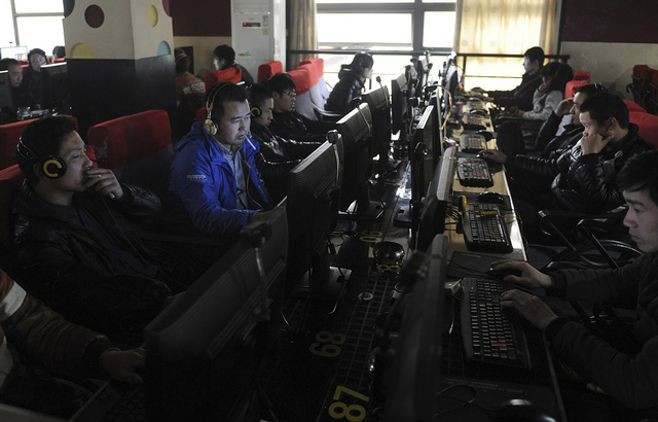Man Spends Time Watching Cat Videos While Outsourcing Programming Job to China

- China’s hardworking factory culture and mass-production capabilities appeal to companies like Apple, which look for cheap labor to minimize costs. But it’s not just companies doing this: the trend has become so popular than even individual workers exploit it -- with the obvious difference that they, unlike companies, are not supposed to.
Or at least one worker did. This is the story of a U.S. software developer who decided to do a bit of personal outsourcing until he was caught paying people in China to do his job -- for a fraction of what he earned domestically.
A 2012 investigation by a security team from U.S. mobile communications company Verizon (NYSE:VZ) revealed that a man at a third-party company, referred to only as “Bob,” was caught outsourcing his job to China, leaving him with plenty of time on his hands during the workday.
During the investigation, his Internet browsing history proved that cat videos and eBay auctions interested him more than his job as a coder. According to the investigative report posted on a Verizon blog, a day in the life of “Bob” looked a lot like this:
· 9:00 a.m. – Arrive and surf Reddit for a couple of hours. Watch cat videos.
· 11:30 a.m. – Take lunch.
· 1:00 p.m. – Ebay time.
· 2:00 – ish p.m Facebook updates – LinkedIn.
· 4:30 p.m. – End of day update e-mail to management.
· 5:00 p.m. – Go home.
Several blogs are claiming that Bob was able not only to get away with surfing Reddit, a site that compiles Internet trends, and watching house pets play, but he did so while being recognized as a top employee at the unidentified company. According to Next Web, an Internet technology online news publication, Bob received high praise for his daily work performance and produced well-written code on deadline.
So how was Bob’s ruse discovered? You can thank China’s Great Firewall for that.
Virtual Private Networks are necessary to “jump the firewall” into China, where the government blocks access to many sites on regular Internet connections. The American company that Bob worked for noticed repeated access to its computers from an open VPN in Shenyang, China, under Bob’s login. Assuming it was a malicious security breach, possibly from hackers, it contacted Verizon to investigate.
As Bob clocked in every day, someone in China was logging in as well. After monitoring and examining the VPN usage, Verizon noticed that the connection would last the entire workday, on a consistent basis.
Puzzled investigators finally resorted to looking into “Bob,” the software developer in his mid-40s whose identification was being used, and his computer workstation, in what seemed to be a last resort to figure out the mystery VPN problem.
It was then that hundreds of cached PDF invoices and files from a Chinese consulting firm revealed that he had been dealing with an employee of that firm in Shenyang, who was logging in to do his daily work.
“Bob” was able to pay the Chinese consulting firm just a fraction of what he earned in his position. The Verizon team also suspected that Bob was running the scam at several different companies, ensuring himself hundreds of thousands of dollars each year while paying about $50,000 to the Chinese firm.
The really worrisome part of this story, at least for American software companies, is that according to the Verizon report, the work that the Chinese turned in under the American employee’s name was so good that “Bob” had been repeatedly called “the best employee in the building.”
It may not be long before American companies decide, even more so than they are doing now, to skip U.S. developers like “Bob” entirely and go straight to the sources that produce, for a relative pittance, such great work.
© Copyright IBTimes 2024. All rights reserved.






















